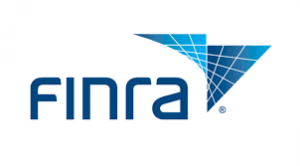
On September 9, 2020, FINRA issued an AWC resolving an investigation with FA Patrick J. Knox. At first blush, the investigation seemed to resolve a rather straightforward Reg S-P violation. FINRA accused Knox of printing his customer list in anticipation of joining a new broker-dealer and providing the list to his prospective employer. Apparently, the list included customer names, social security numbers and birth dates. Because the customer’s did not authorize the release of this information, FINRA deemed Knox to have violated Reg S-P and slapped his wrist with a 10-day suspension and a fine of $2,500. However, a closer examination of the AWC raises some interesting questions about the viability of certain protections afforded by the Protocol for Broker Recruiting.
The Protocol for Broker Recruiting
The Protocol is an agreement designed to provide a framework for representatives to leave one firm and join another. If an FA abides by the Protocol, she can join a competitor without fear of being sued for having violated a contractual non-solicitation provision. Firms that join the Protocol do so on a voluntary basis and agree that an FA can join a competing firm and bring along a client list containing the following information: client name, address, phone number, email address, and account title of the clients.
FINRA Stakes Out a Position at Odds with Broker Protocol
FINRA’s AWC with FA Knox contains a legal analysis that seems at odds with the Protocol. FINRA claims that Reg S-P generally prohibits financial institutions from disclosing “nonpublic personal information” about a customer without customer consent. That part of the AWC cannot be debated. However, FINRA then goes on to claim that “nonpublic personal information includes, among other things, names, addresses [and] telephone numbers ….” Given that the Protocol specifically permits a departing FA to take a list containing “names, addresses and telephone numbers” it is hard to square FINRA’s AWC with the terms of the Protocol.
I have doubts about FINRA’s analysis here. Clearly, Reg S-P guards against unauthorized disclosure of information such as social security numbers, account numbers, dates of birth and the like. But a basic Google search can reveal a person’s name, address and telephone number. It certainly seems that FINRA overshot the mark by claiming this information constitutes “nonpublic personal information” as contemplated by Reg S-P.
Herskovits PLLC has a nationwide practice defending individuals and entities with FINRA and SEC investigations and enforcement proceedings. Feel free to call us for a consultation at 212-897-5410.
 FINRA Lawyer Blog
FINRA Lawyer Blog

